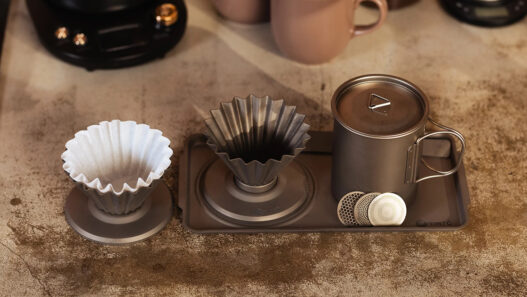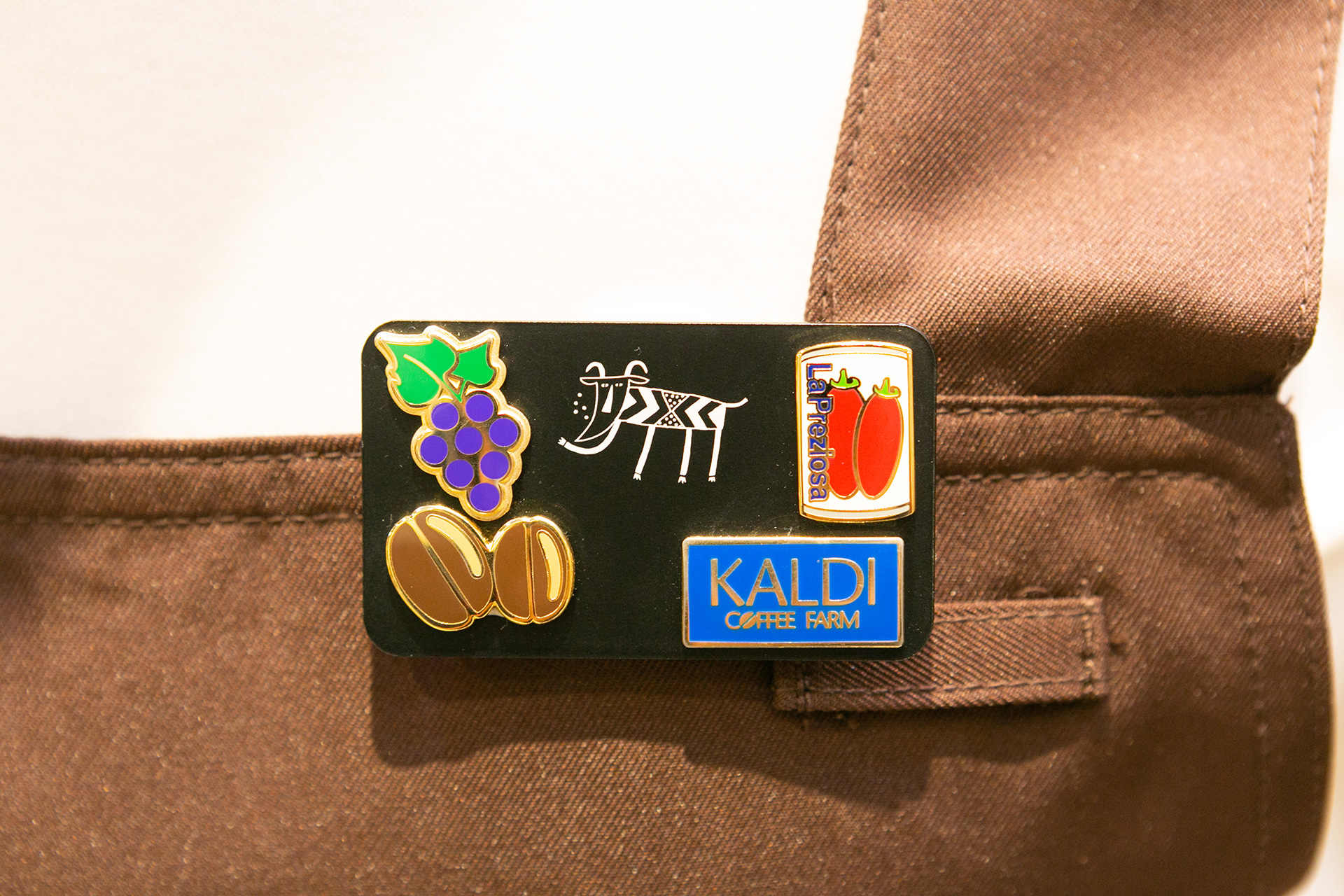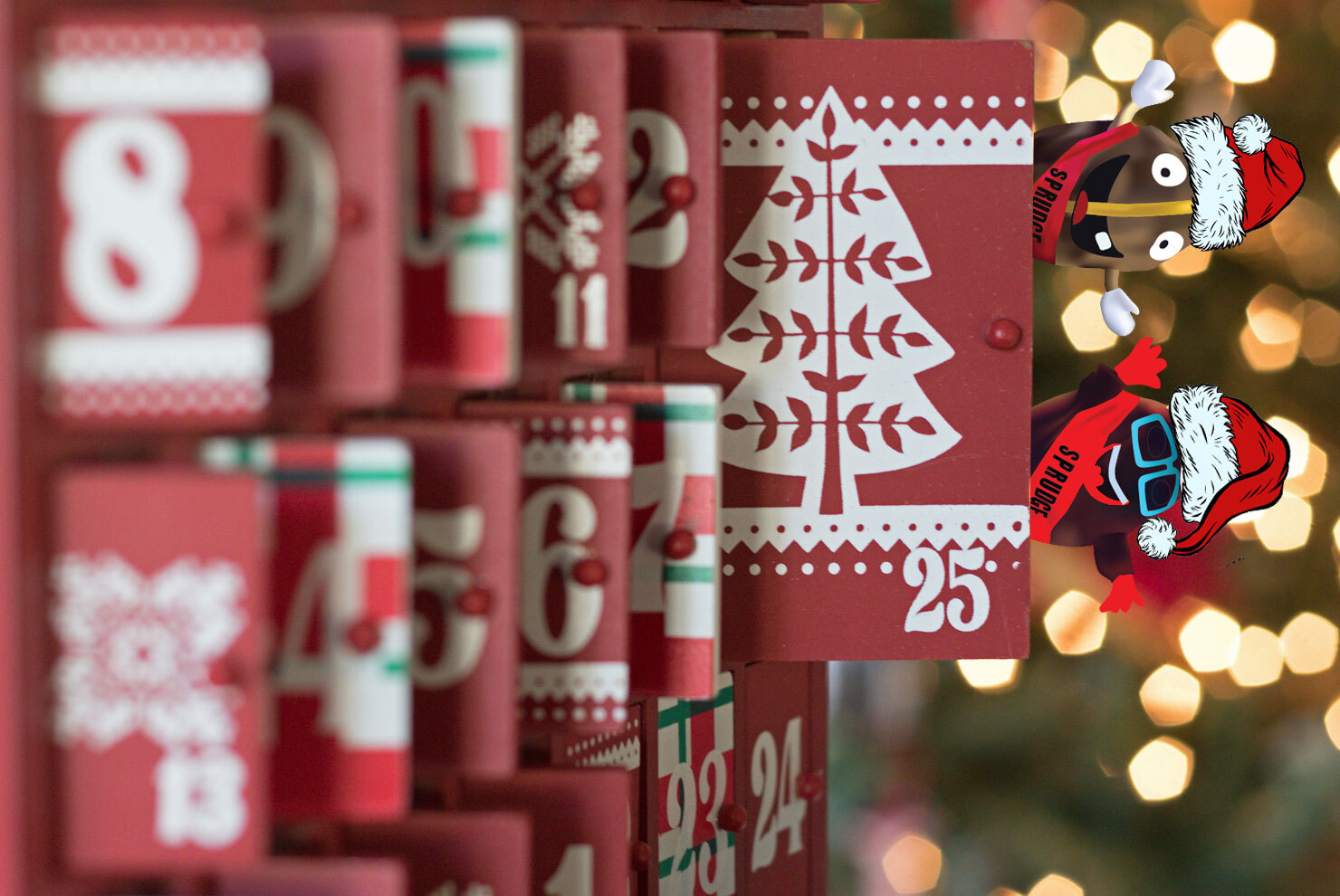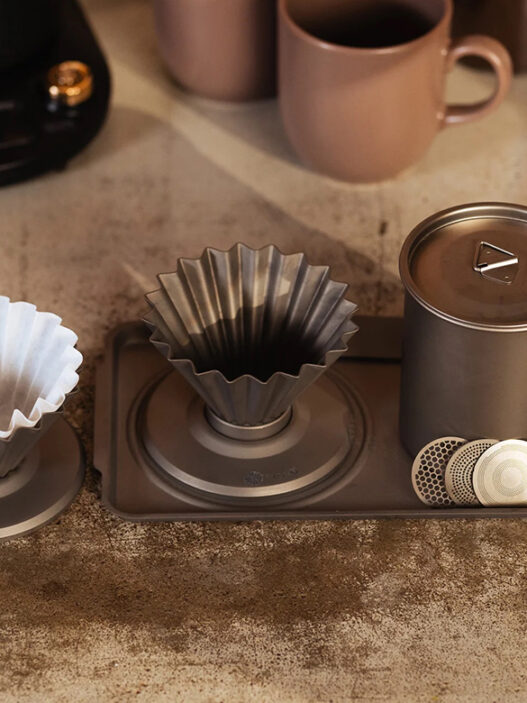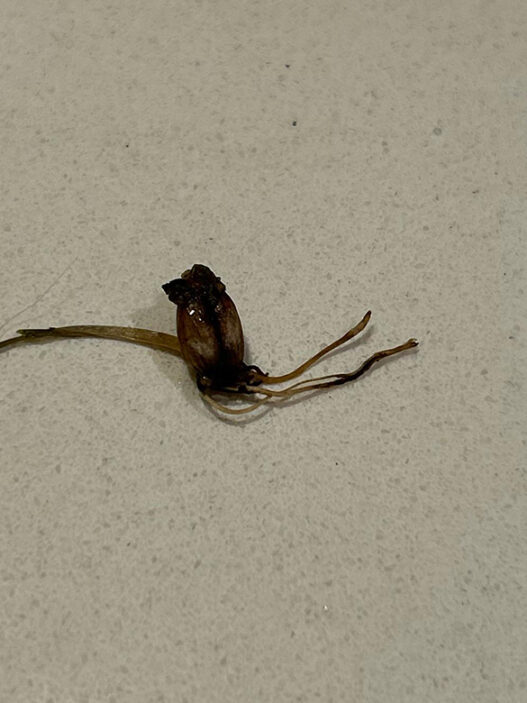Sprudge has published every kind of coffee story on Japan over the last 15 years, from neighborhood guides to cafe deep-dives to omakase tours and beyond. But this is only a fraction, but a glimpse, of the totality of coffee that’s available to drink on these coffee-loving islands. Between the vending machines available everywhere, 24/7 convenience stores with their own cafe-like menus such as Machi Cafe by Lawson, traditionally old school kissatens, there’s a universe of coffee options to explore.
Today we’re taking you to a particularly interesting facet of Japanese coffee culture: Kaldi Coffee Farm, a kind of supermarket with more than 460 locations across Japan, most of them open until 9:00pm, and all of them featuring a keen focus on coffee coffee coffee, as the name might imply.
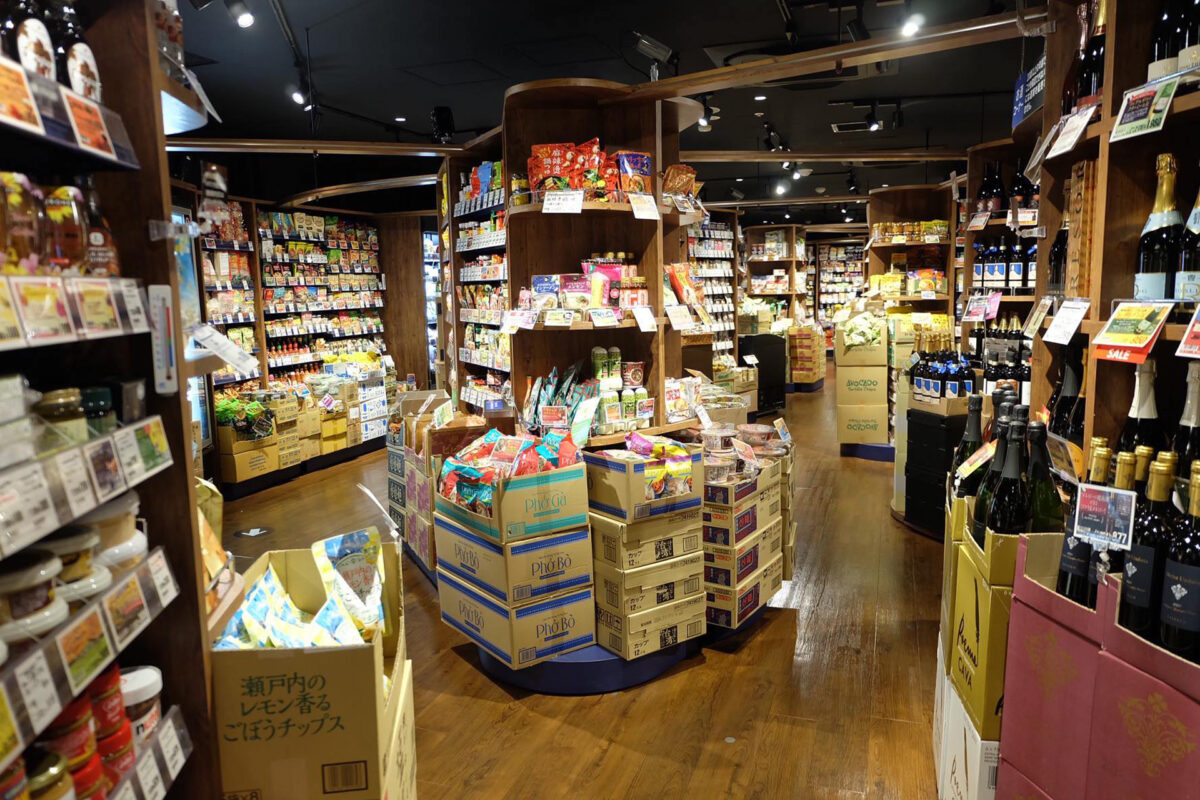
A treasure hunt
Kaldi Coffee Farm stores are present in every Japanese prefecture, from Okinawa to Hokkaido. Coffee is a huge focus here, but it’s not all they sell—at Kaldi you’ll also find imported goods, spices, frozen sweets, cheeses, and so much more. The brand’s story begins in 1977, when coffee was still considered a luxury item in Japan and barely consumed at home; the brand’s mother-company called “Camel Coffee” started importing green beans, roasting, and doing wholesale.
After the boom of coffee shops, leading to an increase of coffee interest and consumption among the Japanese society, Camel Coffee explored the idea to open a store focusing on coffee only and imported goods such as canned tomato, pasta, fish sauce, and coconut milk—items frequently requested by coffee shops for their wholesale needs. They opened their first “Kaldi Coffee Farm” store in 1986 in Shimotakaido (Tokyo), focusing on coffee. Nowadays you can easily spot the blue and brown shop fronts of Kaldi Coffee Farm in malls or tucked-away in calm backstreets near train stations.
The shop itself feels something like a maze or treasure hunt, with narrow aisles that allow only one person at a time to explore each shelf. It’s neatly organized to guide you through a journey of discovering various delicacies from overseas. The dim, warm lighting creates an atmosphere reminiscent of a library, inviting you to explore at a leisurely pace. You’ll find yourself wandering through an extensive lineup of wines, then moving on to explore shelves of spices before discovering the biscuits and tea area. Your journey ends in the widest space—the coffee section—right in front of the registers.
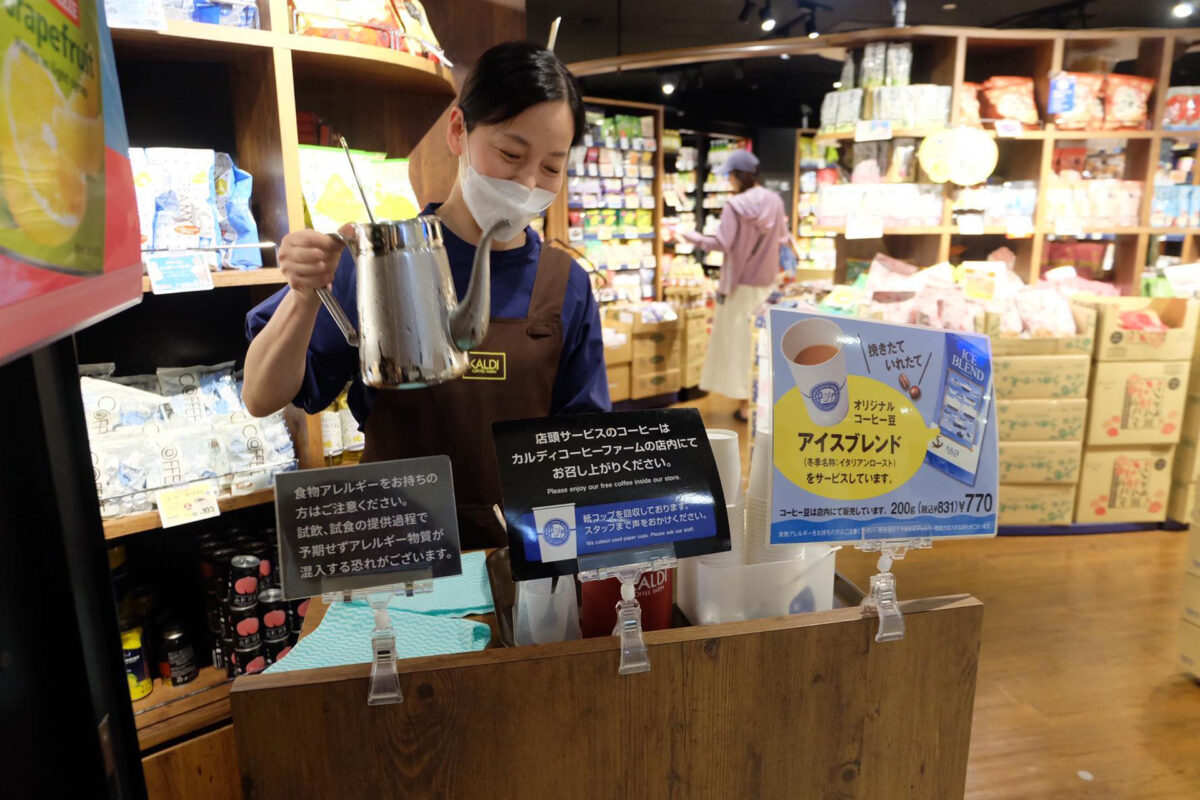
A flavorful sanctuary
As one browses their way across Kaldi Coffee Farm, you’ll notice a series of brochures available for free on many of the shelves. In the coffee section these printed materials include brew guides, recipes, and details about the origin of the beans, along with the parameters for each available coffee including information like roast level and acidity. At the entrance of Kaldi there’s always samples to try—iced coffee on hot days, warm coffee on chilly ones, and always a number of promotional items to try. For US-based readers, it’s fair to compare this experience to the sample section at Trader Joe’s—except in the wintertime at Kaldi, you might even be given samples of warmed, spiced wine!
As for the coffee itself, what they’re selling at Kaldi also projects a certain Trader Joe’s quality. You’ll find a consistent lineup of approximately 30 coffee varieties, including seasonal blends, special editions, a range of single origin coffees, and novelty “premium” options familiar to longtime coffee drinkers—think Jamaica Blue Mountain or Hawaii Kona. Online the coffee options go even deeper, including many Cup of Excellence winning single origin coffees. The sum total is a coffee program that’s very much built for accessibility and mass appreciation—having 400+ shops does that for you—but with some real gems to discover for discerning coffee drinkers.
The shop also sells a wide array of coffee brewing gear, including coffee spoons for measuring, canisters, servers, mugs, cold brew bottles, drippers, filters, and much more.
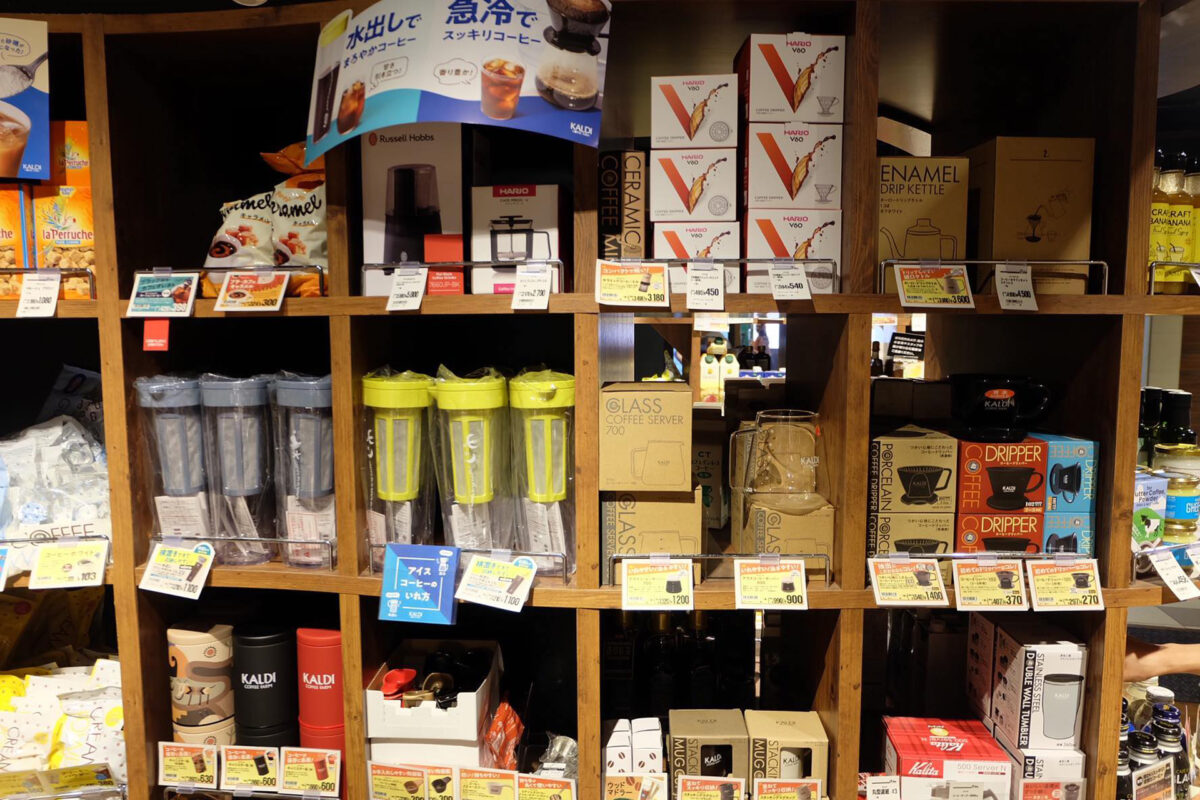
Embracing Coffee Culture at Kaldi Coffee Farm
Kaldi Coffee Farm embraced the rise of specialty coffee trends just in time, seamlessly blending with Japan’s diverse coffee consumption culture. It is adapted to everyone’s tastes: kissaten enthusiasts can find dark roasted blends or classic choices like Indonesia Mandheling, while more adventurous coffee aficionados can try lightly roasted Kenya beans or indulge in premium options.
When you step into Kaldi Coffee Farm, you enter a place where you can explore, learn, and indulge in the world of coffee, no matter your level of literacy. It’s a space where familiar atmosphere comforts nostalgia, and new discoveries await—from wines to coffee and tea, there’s always something intriguing to seek.
Japan hosts more than its fair share of award-worthy cafes, the sorts of places you’ve seen on Instagram, or read about on Sprudge. But it’s fun to experience somewhere like Kaldi Coffee Farm in addition to those rare, special places; every Kaldi store is immediately welcoming and approachable, especially if you don’t speak the language. You’ll find another vantage point for coffee culture in Japan at Kaldi Coffee Farm—and a unique experience that’s really a lot of fun.
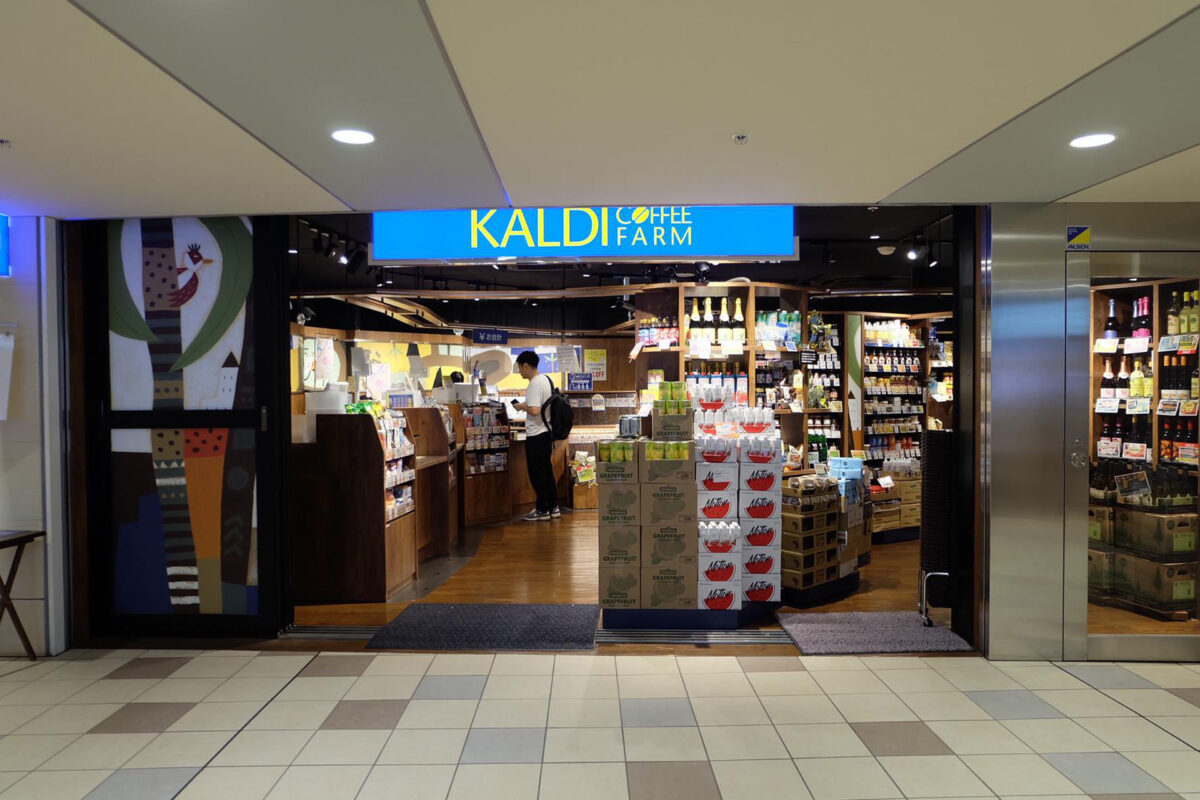
Pauline Daïd-Poisot is a coffee professional and freelance journalist based in Tokyo. This is Pauline Daïd-Poisot’s first feature for Sprudge.






